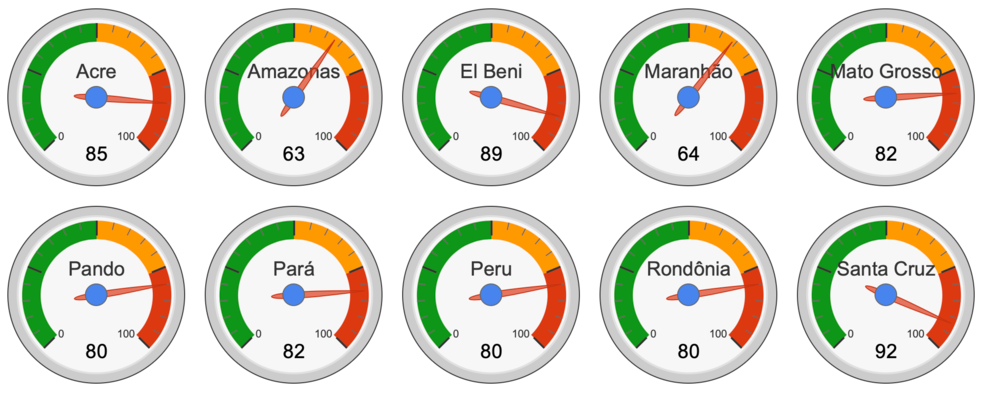NASA Warns of ‘Active’ Atlantic Hurricane and Amazon Fire Seasons
Forecasts show high risk of fires and hurricanes, in part due to warmer than average sea surface temperatures
/https://tf-cmsv2-smithsonianmag-media.s3.amazonaws.com/filer/42/b9/42b9c099-47b7-4dc5-a1c6-879d973d9743/fires_in_amazon.jpg)
The conditions are “ripe” for an active Atlantic hurricane and Amazon fire season in 2020, according to forecasts from NASA and University of California, Irvine scientists.
Researchers point to warmer than average sea surface temperatures in the North Atlantic Ocean as a sign of intensified hurricanes and fires to come, Amanda Kooser reports for CNET. “[W]armer surface waters near the equator draw moisture northward and away from the southern Amazon, favoring the development of hurricanes,” NASA explains in a statement. “As a result, the southern Amazon landscape becomes dry and flammable, making human-set fires used for agriculture and land clearing more prone to growing out of control and spreading.”
Doug Morton, NASA scientist, says in a statement that the forecast for this year resembles predictions from 2005 and 2010. Those years, “warm Atlantic sea surface temperatures spawned a series of severe hurricanes and triggered record droughts across the southern Amazon that culminated in widespread Amazon forest fires,” says Morton.
Morton and Yang Chen, a scientist at the University of California, Irvine, created the Amazon fire season forecast, a tool that predicts the severity of each fire season by analyzing the link between climate change and fire occurrences. Right now, the scientists’ tool predicts a high fire risk in Brazil—the Acre, Mato Grosso, Pará and Rondônia states—and the El Beni, Pando, and Santa Cruz departments in Bolivia.

“Changes in human fire use, specifically deforestation, add more year-to-year variability in Amazon fires,” says Chen in the NASA statement. “In addition, climate change is likely to make the entire region drier and more flammable—conditions that would allow fires for deforestation or agricultural use to spread into standing Amazon forests.”
The regions with high risks were among those most affected by an unprecedented number of fires that swept South America last year. By the time the rainy season arrived in Brazil last December, more than 3,700 square miles of the Amazon had been destroyed by fires—the “highest loss in Brazilian rainforest in a decade,” according to Matt Sandy of the New York Times. As Kooser reports, human activity such as deforestation greatly exacerbated those fires.
Of course, Morton adds, models can only provide an indication of risk—not a clear view of the future. “Now, satellite-based estimates of active fires and rainfall will be the best guide to how the 2020 fire season unfolds,” says Morton in the statement. Still, he says, “2020 is set up to be a dangerous year for fires in the Amazon.”
As Aristos Georgiou reports for Newsweek, this year’s Atlantic hurricane season has already proved to be a busy one, with six named storms sweeping through the region. Other forecasts have also pointed to increased activity: for instance, researchers at Colorado State University forecasted 20 or more storms for the 2020 season, their highest estimate since 2005, reports meteorologist Taylor Ward for CNN. Hurricane season peaks from August to October, reports Ward.
/https://tf-cmsv2-smithsonianmag-media.s3.amazonaws.com/accounts/headshot/nora.png)
/https://tf-cmsv2-smithsonianmag-media.s3.amazonaws.com/accounts/headshot/nora.png)